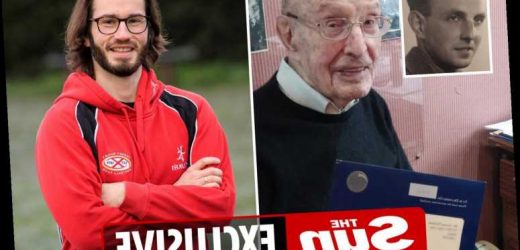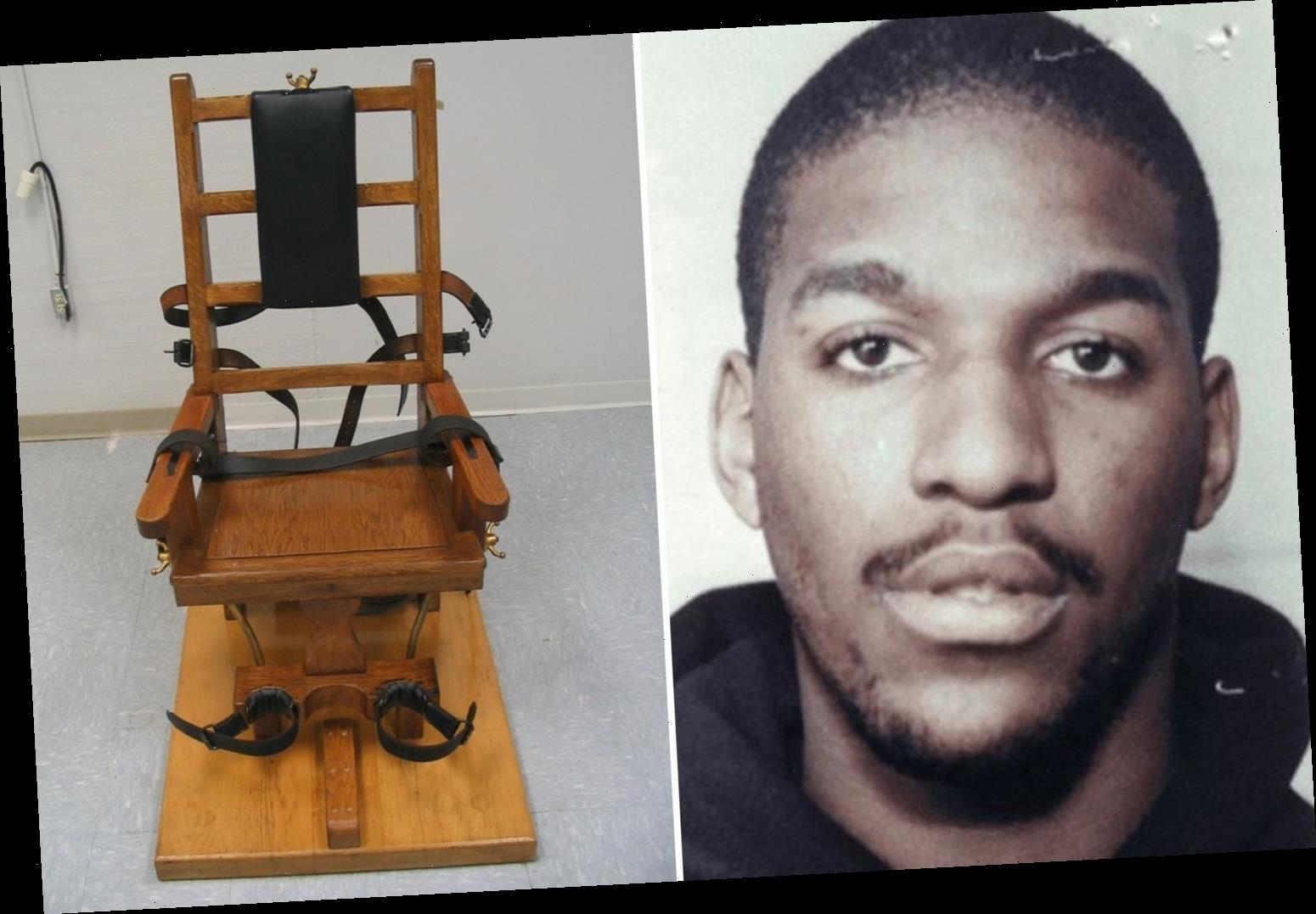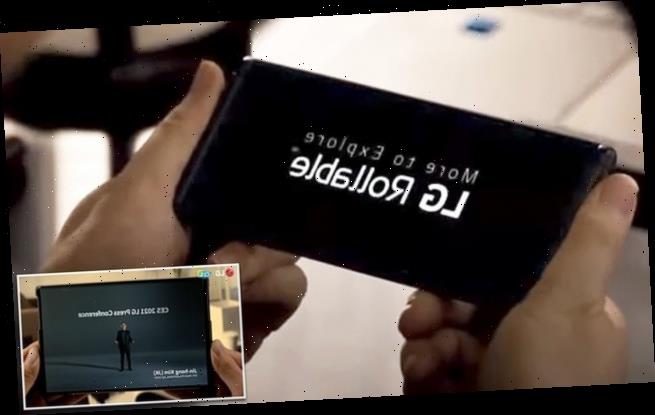IT’S a life that wouldn’t be out of place on the big screen or in a novel on your bookcase.
As a student George Portland, now 100, evaded capture by the Gestapo in Prague by 12 hours before war broke out, ran from the Nazis in France and then joined the British Army to help win World War 2.
He was also one of the first people to witness the liberation of concentration camp Bergen Belsen – but now in his old age has been left with few people to hear his stories.
The dad-of-three lives miles, and in one case countries, away from his children and sadly many of his close pals, as well as his wife, have passed away.
Thanks to his age-related ailments it is hard for him to leave the house – meaning he often relies on a neighbour for company.
In a bid to combat George’s isolation, his son Ashley signed him up to companiions, an app which matches lonely people with someone to talk to or help with everyday tasks.
He said: “My dad has a long story, but in a nutshell when he was 18 and studying medicine in Prague the Nazi’s invaded. He got into a bit of trouble with some SS soldiers and had to leave immediately and it goes from there through the war to him making a life in England.
“It’s great for him to have someone to tell those stories too through the app – rather than just seeing people who get him dressed and make his food.”
The app has lead to history enthusiast Rob Pitman, 33, visiting the elderly gent once a week to listen to the tales of the centurion’s colourful life.
The production company owner said: “I probably get more out of this than George does. It’s incredible to hear his stories first hand.
“I feel privileged to be able to meet and chat to someone who has had these experiences.
“I was a little bit nervous the first time I went to meet Geroge but that quickly went away when I realised how open he was and willing to chat about everything. Time just zips by when we’re together.
It’s really nice to know my dad is getting a human connection
“We never have any awkward silences. I’ve since persuaded several friends to sign up to the app.
“Thanks to covid our meetings are on pause but I can’t wait til they restart as George has promised to show me some of his photos from the war.”
The meetings mean George gets to see someone outside of his carers who pop in three times a day – not to mention a new pair of ears for his tales.
Until this year Ashley cared for his father, but moving to Spain has meant he is unable to continue doing so.
Ashley said: “Rob's visits are wonderful especially for me as someone who's thinking about my dad spending day in, day out – not just during lockdown but pre COVID and post COVID – trapped in his home.
“It’s really nice to know my dad is getting a human connection with someone who is there for him.
“Plus it’s a new set of ears to hear his stories which we know backwards in the family.”
George was born in what is now Slovakia but after escaping life under Nazi rule, he settled in England as his final home and has never been back since.
Reflecting on his incredible life – starting with his encounter with the Gestapo – George said: “I was with my girlfriend in a coffee house in Prague and two Gestapo walked in and sat down at the table next to me.
“They stared at my girlfriend, they went to try and make contact. I quickly paid the bill and left. They also got up and followed. I went through the revolving door and jumped in my hired car but they got a note of the registration number.
“I went to my Uncle where I stayed and said 'I'm going home to Bratislava. The Gestapo are after me.’
“I got on a train and 12 hours later my uncle phoned to say the Gestapo had been at his house looking for me.”
George’s only crime was being Jewish in a Nazi-occupied country.
Knowing he was not safe at his parents’ house, he was told to flee to France to a family friend’s home – but he couldn’t cross the border as he did not have a visa.
He added: “I stayed in Italy and eventually I got in touch with some illegal smugglers who said they could get me into France.
“They put me on a boat at Midnight and I arrived at the French coast three hours later and was dropped by the airport.
“I managed to climb the fence and dropped over and hid in a trench there.
“In the morning I had to go to Nice to go to the family friend’s house. I was in a suit and had a hat – I looked like a tourist.
“I climbed the fence again and walked to the main road where there was a bus station.
“I had ten francs and the bus fare alone cost eight francs to get to the centre of Nice. My capital was dwindling.
“I phoned the friend from a coffee house who apologised for not being able to get me a visa and I said ‘don’t worry, I’m already here. I’m in a coffee house’. It took him ten minutes to get me.
“I was safe in France – illegally. My friend got me a certificate saying I was a student in case police stopped me so I could stay.”
“There were bodies lying everywhere, smelling awful."
When the war broke out George joined the Czech army to try and stop the German’s invading France – a feat for which he was awarded the Legion d'honneur – the highest honour France can bestow.
Sadly, the defence didn’t work and once again the centenarian was forced to flee a second home.
He recounted: “Eight of us decided at midnight to illegally leave the military camp in northern France and head south to get away.
“The motorway was bombarded by Germans making it very dangerous for us.
“I drove for two days to get to the harbour in Bordeaux to find a boat to get away from the country.
“I found a ship from Panama, South America, and I persuaded the captain to let six of us have safe passage in return for our rifles and machine guns.
“They gave us the first meal that we had for two days. It was really good.”
But thanks to German U boats the ship was forced to zig-zag across the ocean leaving George and his companions horrifically seasick.
When they stopped to refuel in Belfast George and his pals opted to get off and stay in the UK, eventually joining the British Army.
After several postings – including a stint as a motorcycle mechanic which George knew nothing about – he was sent to France four days after D Day to help push the Nazi’s out of Europe.
As he was fluent in five languages George was recruited to military intelligence and during one of his trips drove past a sign to Bergen Belsen concentration camp.
He said: “I was with my driver and drove to Hanover to deliver something and I saw a sign 'Belsen'. I said to my driver 'We must go there. We must see.' So we drove and as we got nearer and nearer the stench was incredible. It was really awful – I can't describe it.
“We got there and I was nearly sick.
“There were bodies lying everywhere, smelling awful.
“There were skeletons walking about in uniform. It was dreadful. I will never forget it in my life.”
Bergen Belsen, liberated on April 15 1945, was one of the largest concentration camps in Nazi-occupied territory and as the death place of Anne Frank and her sister Margot.
Miraculously George’s parents and close family survived Nazi-occupied Slovakia thanks to his father’s fame as a surgeon.
While the centurion doesn’t recall how they managed to evade being sent to a concentration camp – his son does.
Ashley said: “My grandad had saved the life of a patient who hid them in his house in the country. And my uncle was walled up in a cellar, and they just kind of kept like that through the war and survived.”
- To become a companion or organise a visit for you or your loved one download the companiions from the Play or Apple Store
Source: Read Full Article








